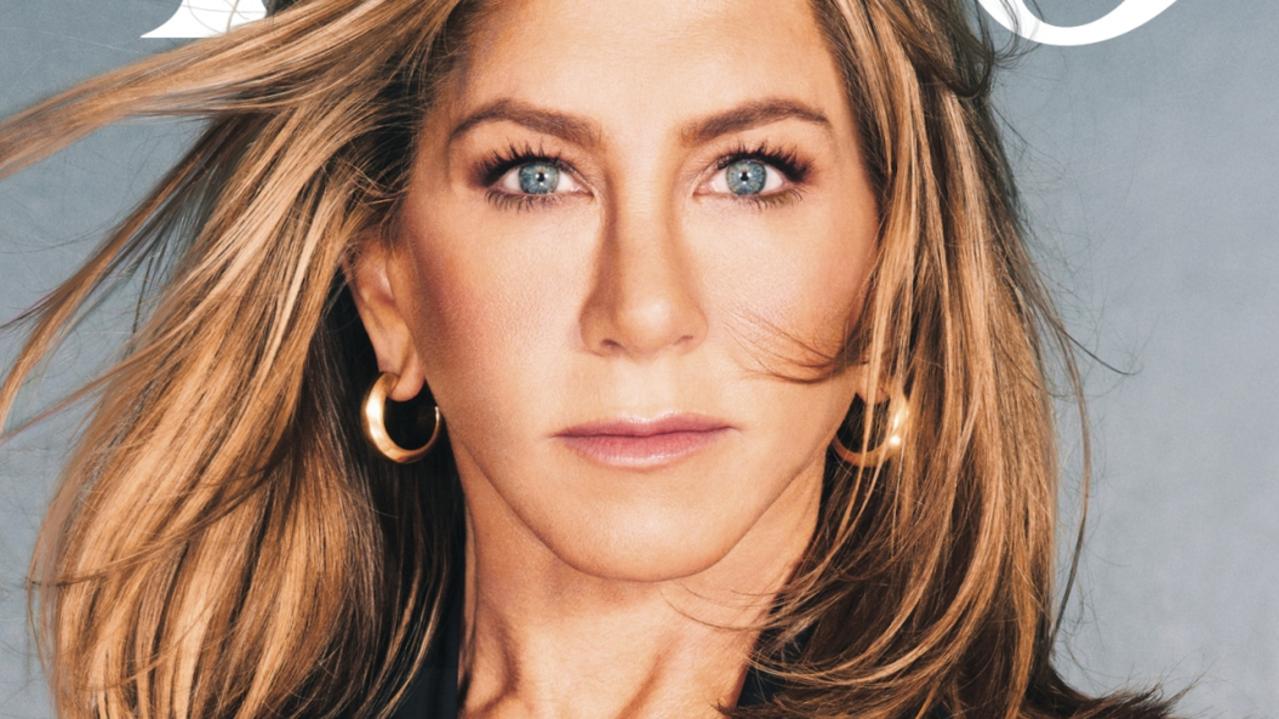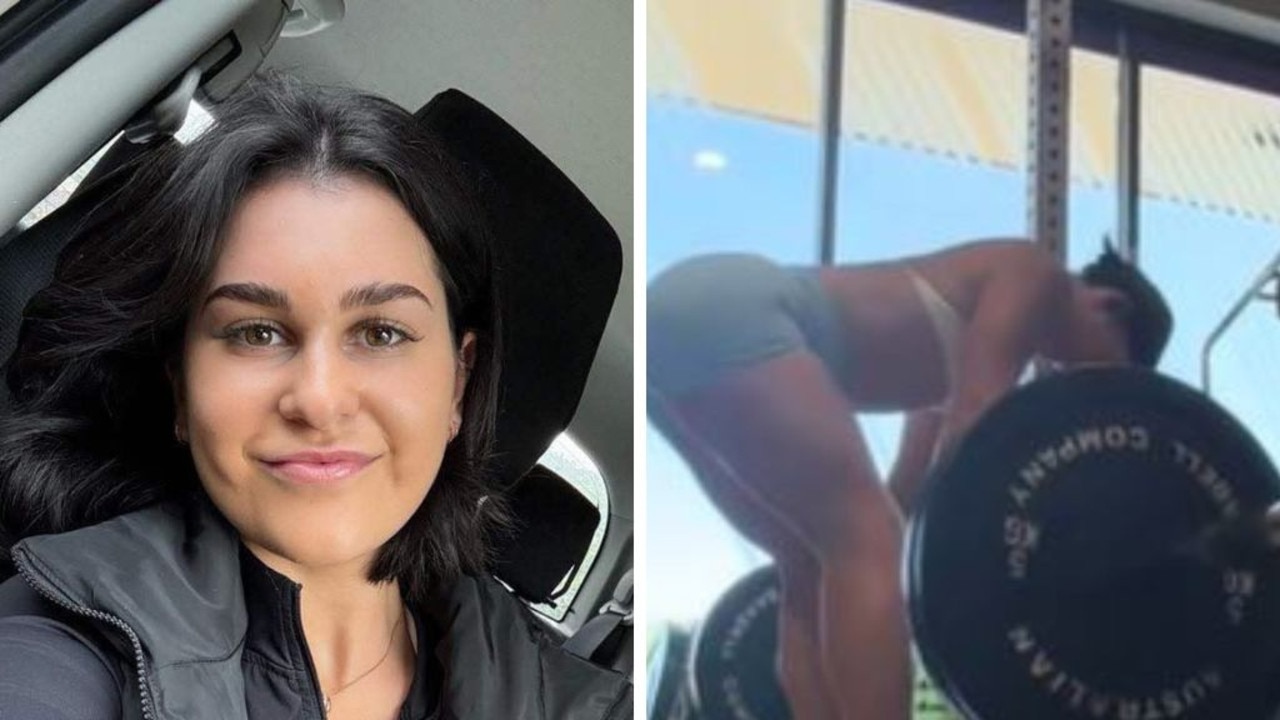How Sophie Gajnik beat anorexia with body building
SOPHIE Gajnik plummeted to 30kg in the grip of anorexia, then reclaimed her health through body building. The photos of her transformation are amazing.

TRIGGER WARNING: This article contains information about anorexia which may affect vulnerable readers.
An anorexic woman who plummeted to a jaw-dropping 30 kilos and lived on just 300 calories a day has reclaimed her health by developing a passion for body building.
Sophie Gajnik, 24, from Melbourne, Australia, was introduced to sport at a young age, but she claims the pressure of uni left little time for exercise and soon the student had gained almost five kilos.
In a desperate bid to get back in shape, she started scrutinising her diet and exercising until she collapsed in exhaustion.

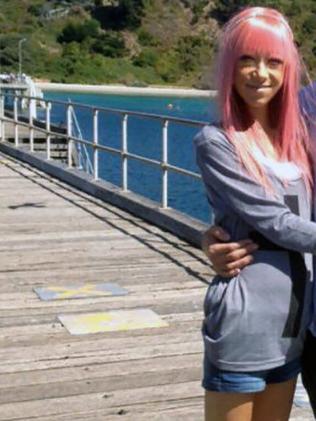
But it wasn’t until her hair started falling out that she realised she needed to make a change and instead of eating lettuce and shunning fatty foods Sophie now polishes off chicken schnitzels and dozens of eggs in her bid to build muscle.
Now a healthy 66kgs, her new found muscles mean she can squat an impressive 105kgs — the equivalent of almost four of her former anorexics selves.


Sophie said: “I was never convinced that I had anorexia, but how could I? I was so hungry and delusional. I was dying.
“I meticulously counted every calorie and would only eat if I ‘earned’ it through exercise. Even then, I wouldn’t eat anything that was less than 90 per cent water-based.
“I had no muscles and rarely could I get up in time to go to the bathroom. Usually I’d just wee myself and my mum or boyfriend at the time would have to clean up after me.
“I had long pink hair and if I ran my fingers through it, 50 hairs would come out.
“It was devastating.”

Growing up, sport was always Sophie’s favourite part about school and at home her dad introduced her to swimming and tennis.
With two French parents, the family’s diet was rich and butter and Sophie would snack endlessly on Doritos and lollies, claiming that at that point she didn’t even know what a calorie was.
Still, her active lifestyle kept her skinny and at 170cm tall she hovered around 50kgs.
But when it was time to enter university at 19 years old, Sophie’s world began to change.
She said: “I decided to study psychology because I wanted to be a psychologist or a social worker, but I quickly realised that I couldn’t be those things because I’m too much of an emotional person.
“So after about a year, in December 2011, I cancelled my courses. My parents were quite concerned and told me I was ruining my life.
“They came to Australia from France not speaking any English, so I felt like a failure. Like garbage.
“On top of that, I noticed I’d put on about 5 or 6kgs and my jeans were a little snug so I though, at least I can get on top on this. This is something I can control.”
The changes were small at first for Sophie cutting out the junk food and going for short runs around the neighbourhood and four months later, Sophie was back to her pre-uni weight of 50kgs.


But the sense of achievement was a feeling she hadn’t felt in too long, so she decided to set another goal of 45kgs, cutting out olive oil and fatty meats from her diet.
No longer was Sophie’s diet a way to lose weight, but a serious disorder fuelled by her obsession with achievement.
She said: “On a typical day, I’d wake up and exercise so I could ‘earn’ my breakfast.
“That meant a three kilometre run, skipping for two minutes, push ups, sit ups, and jumping jacks until I passed out or nearly threw up. The whole routine would take me two or three hours.
“Then the voice in my head would say, ‘don’t eat breakfast! You’re going to ruin your workout!’
“When I did eat, which was usually three times a day, I’d eat 20 grams of spinach, 15 grams of mushrooms, 20 grams of zucchini, and one green pea, never going above 100 calories at each meal.
“I’d even count the two calories in my Lipton tea. I was so scared of keeping food in the fridge because I thought my mum’s food would seep out of the plastic and get onto mine. I was so delusional.”
Instead of going out to parties with her friends, Sophie would lock herself in her room and spend hours researching ways to lose weight.
Yet despite the red flags that were beginning to creep up — fur on her body, painful joints, and yellow skin — Sophie decided to go on holiday to Thailand with her then-boyfriend.
She said: “While we were there, it was at least 30 degrees every day with 90 per cent humidity, but I had to sleep with the heater on and two blankets.
“We were walking around all day and because I couldn’t measure my food, I cut everything in half just to be sure.
“Not surprisingly, I lost 5kgs while we were there. And I was so excited.
“My parents, on the other hand, didn’t even want to see the photos from our trip. To them, I was just a skeleton on the beach.”
Now too weak to exercise, Sophie continued to cut calories and before long she had plummeted to an eye-watering 30kgs.

The health signals continued to crop up — Iron deficiency, low blood pressure, liver damage, and the loss of her period — but it wasn’t until Sophie noticed her hair falling out that she decided to seek help.
With the doctor in front of her, there was nowhere to hide and Sophie had to admit to herself that she had anorexia.
She said: “I was out of options. I had to start eating or I would die.
“But I decided I wanted to do it myself. I didn’t want anyone interfering with my food or feeding me high-calorie shakes. That was my worst nightmare.
“In the beginning, I stuck with the same foods I felt comfortable with, but would eat an extra 50 calories at each meal.
“Eventually I started adding foods back into my diet, like carrots, apples, and capsicum. They tasted so sweet and flavourful!”
Slowly, though, the number on the scale began to creep back up and by the start of 2014, after nearly a year of recovery, Sophie was back to 50kgs.
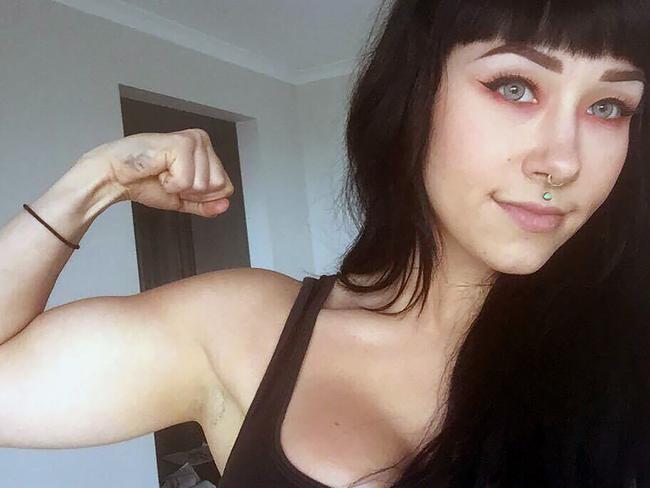
By then, she was slowly getting back into her fitness routine — starting out slowly with stretching and watching yoga videos and later progressing to jogging.
She said: “Cardio is great for your heart but I also wanted to get stronger, so I started lifting weights.
“I was so weak and self-conscious in the beginning, so I’d wait until midnight before going to the gym.
“I was addicted. I loved the positive relationship with food that came with it, as you have to eat protein to see results.
“Around the same time, there was a new gym that was opening closer to where I lived, so one day I took a jog there and put in my resume.
“I knew it was going to be hard finding work because I’d been out of action since 2012, but they offered me a job in reception.
“It was the perfect opportunity to rejoin society and I was finally becoming my bubbly self again.”
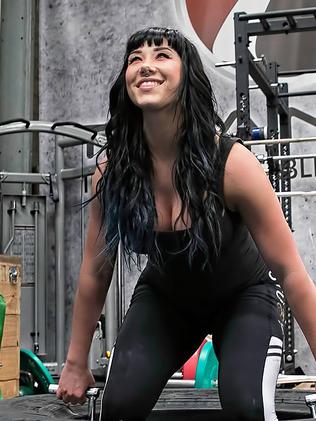

After a year of working at the gym, Sophie was offered the position of manager in February 2016. She’s well-known on the floor and admired for sharing her story openly and honestly.
For Sophie, if she can help even one boy or one girl consider recovery, it’s all worth it to her. She also loves showing women that it’s okay to lift weights, and loves to lead by example.
She said: “I’m addicted to the weights and obsessed with keeping strong and active. I don’t weigh myself anymore or count anything I eat and I even eat treats again.
“I consider myself fully recovered, but eating disorders are a real addiction, just like drugs or alcohol. I’m always wary that I could slip back into old habits, but I’m enjoying where I am right now.
“I’m glad I went through what I did. It was painful, but it taught me a lot. If I can help anyone by sharing my story, then it’s worth it.”
Parents who are concerned about their children can seek advice, support and access to resources by calling Butterfly’s National Support Line on 1800 33 4673 or emailsupport@thebutterflyfoundation.org.au

